
The world sat up and took notice on February 14 of two announcements from Air India confirming record-breaking orders for planes with Airbus and Boeing, the world's largest aircraft makers. The orders are historic not just for Air India but also for India and the world.
In the first announcement, Prime Minister Narendra Modi and French President Emmanuel Macron jointly announced the order for Airbus planes and future cooperation. The virtual announcement had Tata group patriarch Ratan Tata in attendance. The Airbus order comprises 250 firm orders: 140 A320neo, 70 A321neo, six A350-900 and 34 A350-1000 aircraft. This is in addition to the A320neo family aircraft that the airline is expecting in next few months, signed via lessors.
This was followed by a late evening press release from the White House, which confirmed the Boeing order comprising 190 737 MAXS, including the 737-8s and the yet uncertified 737-10s, with options for 50 more; 20 787-9 Dreamliners with options for 20 more, and 10 777-9s. This takes the Boeing order to 220 firm orders with an option for 70 more. The White House release talked about additional jobs in the US and benefits to the US economy.
The total number of aircraft ordered from Airbus and Boeing is 470 planes, making it the largest-ever single order in the history of commercial aviation. Air India has not ordered new planes since 2006, even as every other airline in the country has grown. This led to Air India losing market share in both the domestic and international segments. To regain market share and increase its presence in the country and beyond, Air India needs capacity and that will come with the new aircraft ordered.
この記事は Cruising Heights の March 2023 版に掲載されています。
7 日間の Magzter GOLD 無料トライアルを開始して、何千もの厳選されたプレミアム ストーリー、9,000 以上の雑誌や新聞にアクセスしてください。
すでに購読者です ? サインイン
この記事は Cruising Heights の March 2023 版に掲載されています。
7 日間の Magzter GOLD 無料トライアルを開始して、何千もの厳選されたプレミアム ストーリー、9,000 以上の雑誌や新聞にアクセスしてください。
すでに購読者です? サインイン
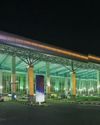
VIDARBHA INDIA'S NEXT AVIATION HUB?
With the modernisation process for Nagpur Airport moving ahead in full steam, Vidarbha, a long-overlooked region in Maharashtra, is gaining momentum as a potential aviation hub with significant infrastructure projects like Air India's aviation academy in Amravati and the ISHAN air traffic management scheme. But what will really give a film to the region is the development of Nagpur airport by the GMR Group, the creation of a second runway and a spanking new terminal.
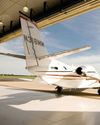
BUSINESS AVIATION INDIA'S MISSED OPPORTUNITY?
India's Missed Opportunity?
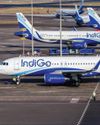
INDIGO'S WET LEASE GAMBLEAN OPPORTUNITY OR A COST RISK?
IndiGo’s reliance on wet-leased aircraft, including six MAX 8 jets, highlights its efforts to tackle grounded planes and expand capacity. While offering flexibility, this approach poses cost and operational challenges, writes AMEYA JOSHI.

LAST-MILE DELIVERY, AI GOES THE DISTANCE
Artificial Intelligence is revolutionising air cargo and last-mile delivery by optimising logistics, reducing costs, and enhancing efficiency. Despite challenges, Al-driven solutions promise transformative growth for the cargo industry, writes R CHANDRAKANTH
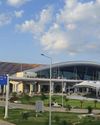
TAMIL NADU'S REGIONAL AVIATION SURGE
Tamil Nadu is set for an aviation boom, with upgrades to key regional airports and plans for new facilities like the Hosur and Parandur airports. These developments aim to enhance connectivity, boost economic growth, and attract trade and tourism across the state, writes RASHEED KAPPAN

POTENTIAL OF ARTIFICIAL INTELLIGENCE IN AIR TRAFFIC MANAGEMENT
Artificial Intelligence promises to transform Air Traffic Management (ATM), improving efficiency, safety, and decision-making. Despite its potential, challenges like regulatory complexities and integration barriers must be addressed, writes DR. S K SARASWATI

INSIGHTFUL MRO
Predictive maintenance is a clear digital priority for MROs. This transformative approach enhances efficiency, reduces costs, and minimises downtime, addressing evolving challenges in fleet management, writes ATUL CHANDRA

INDIAN AVIATION'S 2025 TAKEOFF
India's aviation sector soared to record-breaking domestic passenger traffic in 2024, highlighting robust growth despite challenges like supply chain disruptions and infrastructure constraints. As 2025 unfolds, transformative fleet expansions, new airports, and regional connectivity initiatives promise unprecedented growth, but questions about profitability and execution remain, analyses AMEYA JOSHI
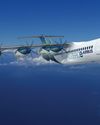
HIGH ON HYDROGEN
Hydrogen fuel presents a transformative opportunity for sus-tainable aviation, offering zero-emission potential. With industry giants like Airbus and Embraer leading advancements, its deployment remains a decade away, observes ATUL CHANDRA

UNTAPPED POTENTIAL OF BUSINESS JETS IN AN ENCOURAGING MARKET
India's business jet market is witnessing growth, fueled by rising UHNWIS and increasing private jet demand. Yet, challenges like high operational costs, inadequate infrastructure, and unclear fractional ownership policies hinder its full potential, explains R. CHANDRAKANTH